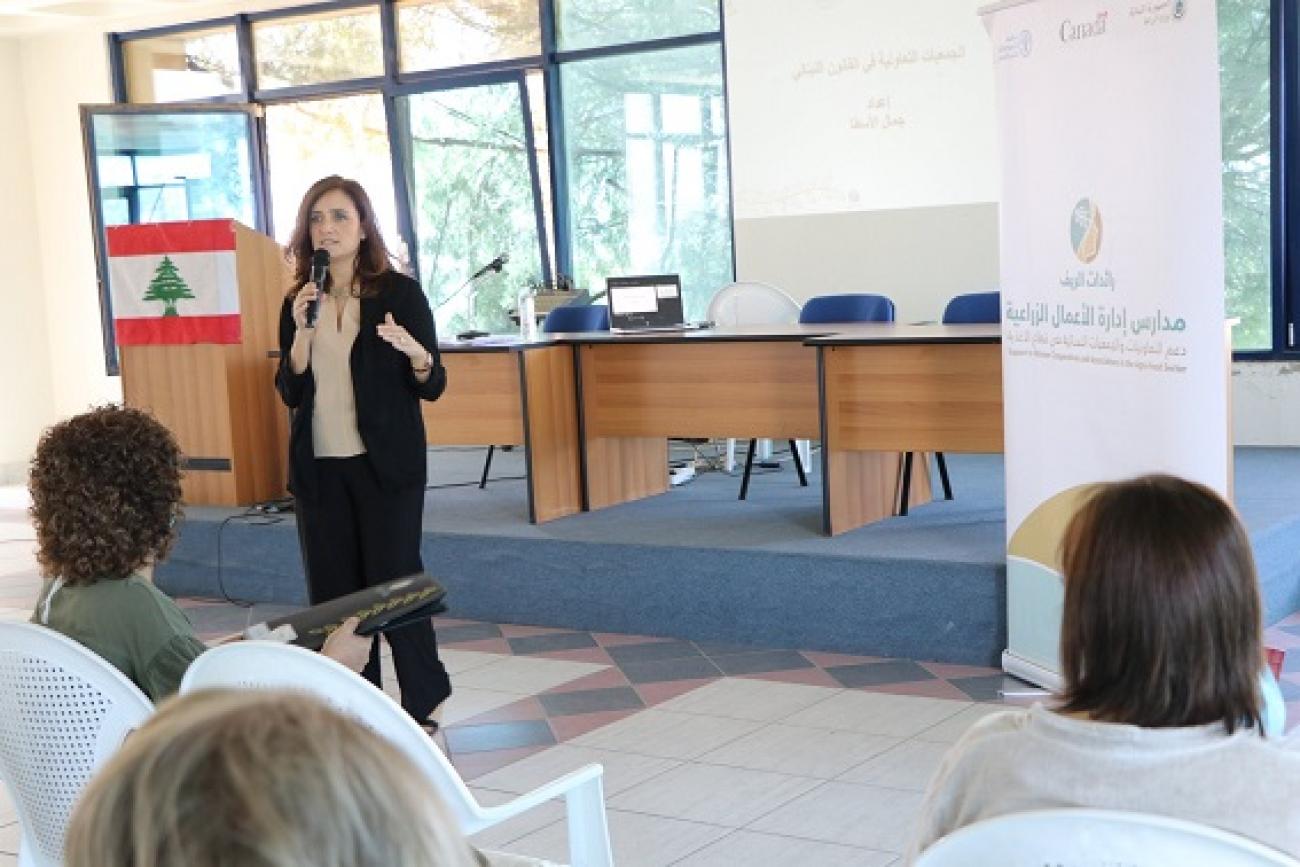Because the legal framework is a powerful tool, FAO has set to educate women groups and associations about the Law of Cooperatives and its applications
“Cooperatives help improve the socio-economic situation of all their members. They also alleviate the unemployment rate” said Jamal Osta, from the General Directorate of Cooperatives (GDC) during a training organized by FAO and the GDC in Zahle, Bekaa on 14 July 2020.
Throughout June and July 2020, a series of training sessions on the Law of Cooperatives are being conducted in all Lebanese regions with more than 600 participants expected to attend. These sessions are organized in the context of the Canada-funded project titled “Support to Women’s Cooperatives and Associations in the Agri-food Sector in Lebanon” named Raedat El Rif. The project is being implemented by FAO since October 2018 in close collaboration with the Ministry of Agriculture, the General Directorate of Cooperatives (GDC), and the General Directorate of Agriculture (GDA).
During her presentation, Jamal Osta was able to simplify the law texts in an interactive discussion speaking the language of the participants. She highlighted the importance of the cooperative during the current economic crisis in Lebanon, its role in food security, and employment. Jamal shared with participants the notions of profitability, sustainability, marketing, cooperatives’ structure, and internal structure in addition to the mission of the General Directorate of Cooperatives.
Twenty four representatives from women groups and associations participated in the training session in Zahle. Rosalie Asmar from Qaa el Rim is currently establishing a cooperative. She benefitted from the session as the information shared during the training was much needed before the start of the establishment of the cooperative and looking forward to establishing a work plan for the cooperative in the near future. For Hanadi El Maalem from Qab Elias, the session broke some stereotypes and prejudgments she had on the role of cooperatives. “Today we learned that the cooperative aims at helping the community, enhancing its livelihoods and not only supporting economically specific members of the cooperative”.
After this session, Wajdi El Gharib was encouraged to turn the small women group he is working with in agri-food production into a cooperative. “The training covered all the information I needed and presented new ideas and concepts,” he said.
Through the above-mentioned project, FAO Lebanon and its partners hope to create an improved and enabling social and cultural environment for rural women’s economic empowerment and to increase the participation of women’s cooperatives and associations in local economies, enabling them to establish and/or expand agri-food income-generating enterprises.
More than 250 women's cooperatives/associations benefit from the sensitization of the communities on the rights and roles of women through gender equality and gender-based violence awareness campaigns. They also benefit from guidance towards profitable businesses through the gender assessment of the agri-food sector. Through the farm business schools, women in the cooperatives/associations are provided with training on topics relevant to them and business management. They are further coached and supported by twenty-five (25) trained facilitators to develop productive and sustainable business plans.







